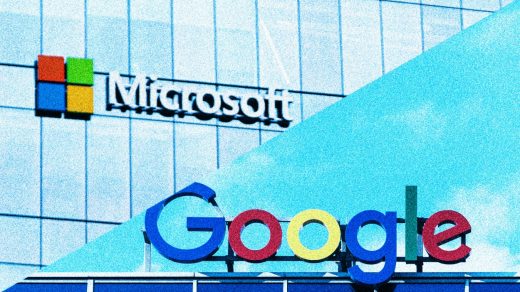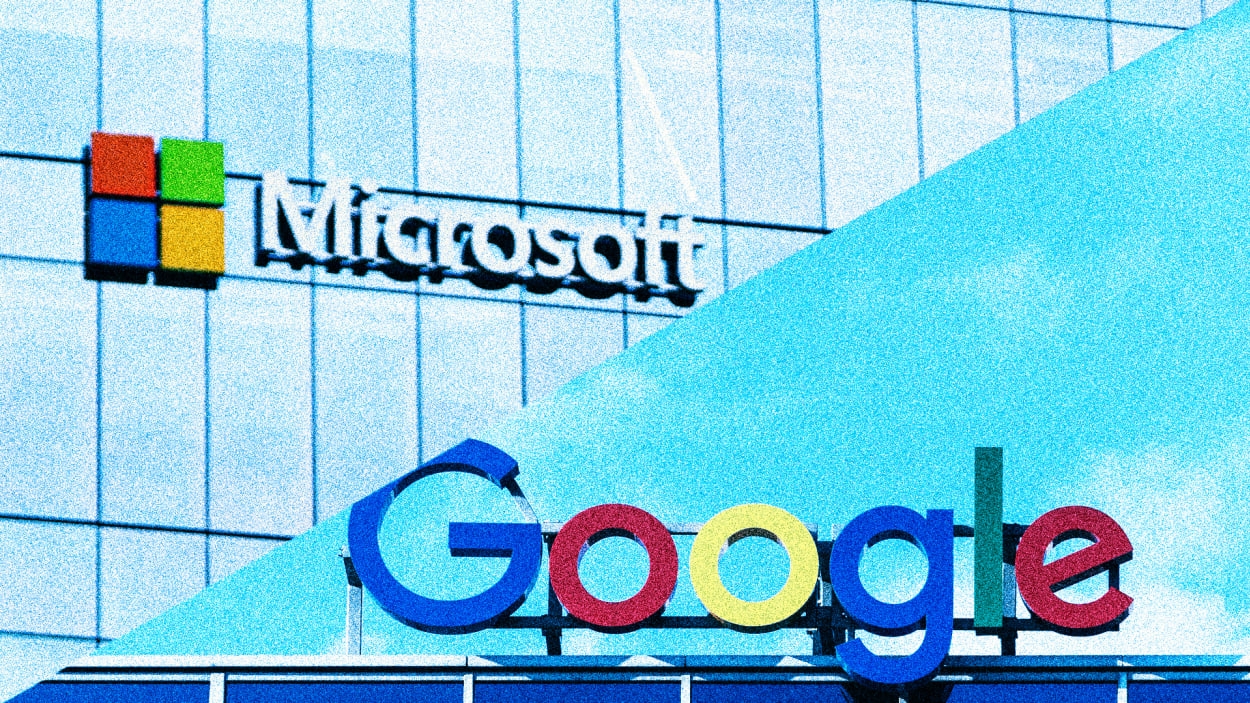What the Alphabet and Microsoft earnings calls tell us about the AI arms race
Alphabet and Microsoft each announced favorable first quarter results Tuesday afternoon, and both companies’ executives brought carefully planned statements about their respective efforts in AI, which could factor prominently in future earnings results.
Alphabet CEO Sundar Pichai opened the call with investors with a long description of the various ways Google has already brought AI to its products, and of the “thoughtful and deliberate” ways it plans to deploy AI in the future.
The company’s messaging on AI usually contains two main themes: that Google was working on, and applying, AI long before any other major tech company; and that it’s applying new AI research to real products as quickly as rivals such as OpenAI and Microsoft.
Pichai stressed that Google’s transition to an AI company represents a major opportunity, not only for Google but for its customers and partners. “I’ve compared it to the successful transition we made from desktop to mobile computing over a decade ago,” Pichai said. “Our investments and breakthroughs in AI over the last decade have positioned us well.”
Then came a laundry list of Google AI accomplishments that included the recently announced (and not very polished) Bard chatbot, and improvements to the company’s PALM large language model (LLM). Google recently announced the addition of generative AI tools to its Workspace productivity suite. Pichai said Google has long used its AI models to improve apps such as Maps and Translate, and will continue using it in its core Search product. “We have used AI to open up access to knowledge in powerful ways,” Pichai said. “And we’ll continue to incorporate AI generally to make search better . . . guided by data and years of experience about what people want.”
He said Google will also continue to use AI in its interactive advertising platforms “to help advertisers find untapped and incremental conversion opportunities” (although the company reported its second consecutive quarter of decline in the ad business).
Alphabet has been battling the narrative that it has ceded a first-mover advantage to OpenAI, whose LLM-powered chatbot ChatGPT has seen immense popularity. Some believe that Google will be too slow to bring AI to bear in the way it searches the web, leaving an opening for AI rivals to chip away at its search-advertising business.
And there are reasons to bet on Alphabet as the tech company that most effectively wields AI in the mid- and long term.
“Given the laundry list of ways that Alphabet has already integrated Al/machine learning into all their key products and the future product pipeline outlined by Alphabet management on the 1Q 2023 earnings call, it seems to us ridiculous to suggest that the company has missed this opportunity,” reads a new research note from the equities analysts at Moffett Nathanson. “It also seems crazy to think that the entire AI game has been won in the top of the first inning. As has been the case over time, we believe Alphabet will continue to engineer great products and let superior user experiences, not press releases, be their driver of value.”
Microsoft had a lot to say about AI during its earnings call, also on Tuesday afternoon. CEO Satya Nadella and CFO Amy Hood peppered their comments with the “AI” term throughout the call with investors. In fact, the term was uttered 50 times, all told.
“As with any significant platform shift, it starts with innovation, and we’re excited about the early feedback and demand signals from the AI capabilities we’ve announced to date,” Hood said. “We will continue to invest in our cloud infrastructure, particularly AI-related spend, as we scale to the growing demand driven by customer transformation. And we expect the resulting revenue to grow over time.”
Microsoft has so far leveraged its partnership and investment in OpenAI to bring the power of LLMs to its Bing search engine, its Edge browser, to its Microsoft 365 productivity suite, and to GitHub with its Copilot coding assistant. The company is already charging for CoPilot ($10 for individual developers, and $19 for developers in corporate settings), and believes it will be able to charge for the “copilot” generative services it will eventually make available to all users of the Microsoft 365 suite.
Microsoft says it’s already earning significant revenue from the AI models and tools it offers corporate customers via its Azure cloud.
“From Coursera and Grammarly to Mercedes-Benz and Shell, we now have more than 2,500 Azure OpenAI Service customers, up 10X quarter-over-quarter,” Nadella said.
The company believes those services will account for a percentage point of growth within the 26% to 27% of Azure growth it projects in its second quarter.
Both Microsoft and Alphabet, and their investors, are aware that the AI race is indeed in its “first inning,” as analyst MoffettNathanson put it. In fact we’ve probably seen just the first few pitches of the first at-bat. But investors and analysts, it seems, are listening closely to the AI messaging. They want assurances that the companies are acting aggressively to get in front of the large profits that could be had if/when AI begins to radically change the way both businesses and consumers do their computing.
As such, investors apparently found things to like—or at least nothing to worry much about—in the AI narratives put out by the companies on Tuesday. Alphabet stock rose as high as 5% in after-hours trading (although this could have had a lot to do with the company’s plan for a $90 billion stock buyback), and Microsoft stock rose 9% in trading Wednesday.
(16)



